WHAT IS WATERGATE:
So for those of you like me who have been vaguely aware of placing a big "-Gate" at the end of each mega-scandal or drama-event, was in reference to something happening prior, but didn't know exactly WTF  it was referring to, let us reiterate this together!
it was referring to, let us reiterate this together! 
https://www.bbc.co.uk/bitesize/articles/zt4tqfr
For those like me who isn't a yank, and was only slightly and vaguely cognizant of the ever infamous american Watergate scandal, and only then through sheer Burgerland-cultural dominance-infused cultural osmosis, here's a short refresher. I'd bet even a few yanks won't actually know because the dramastorm has been so ubiquitous in Burgerland discourse.
Back in 1974, Richard Nixon was the Burgerland president, and would make infamous history by being the 1st and still to date, only president to resign from office (his opponents would say in disgrace). This was due to continious mounting pressure from the public due to especially egregious drama and public-scandal originating from Watergate - which was a complex of government buildings in the capital city of Washington DC. Even though Watergate was the name of the building-complex, over time Watergate became a reference to the entire scandal and events leading up to the very resignation of President Nixon himself, due to the proliferation into the yank public consciousness.
https://www.quora.com/Why-are-scandals-always-titled-insert-word-gate
Basically there were (and still are) two main dominant political parties in Burgerland - the Republican and Democrat party. President Nixon belonged to the Republican party, and some of his primary political opposition in the Democratic Party, housed some of their workspaces in the Watergate building complex. President Nixon was vying for a 2nd term and re-election in 1972 at that time. "In June 1972, five men were arrested trying to bug the offices of the DNC with a listening device during that year's election campaign. The investigation traced those responsible back to members of a Nixon support group, the Campaign to Re-elect the President."
WATERGATE CORRUPTION:
From this point, extreme levels of wingcuckery 

 and political divisiveness will weaken a person's ability to easily discern the history, as the Democrat-Republican divide in burgerland makes it difficult to glean the truth of the event, including very pro-Nixon boomers defending Nixon's actions to heck and back. If you're not a burger, then digging through the bullshit is a painful affair.
and political divisiveness will weaken a person's ability to easily discern the history, as the Democrat-Republican divide in burgerland makes it difficult to glean the truth of the event, including very pro-Nixon boomers defending Nixon's actions to heck and back. If you're not a burger, then digging through the bullshit is a painful affair.
The short is this:
In June 1972, several burglars were apprehended after failing to escape from police in the Watergate Building Complex. The police doing the arrest were already suspicious since the Burglars were falling over themselves to claim that they were burglars, something which should be obvious, I mean what else were these guys doing breaking in, in the middle of the night, having a gay orgy ? 

Later, good journ*lism would reveal that the Nixon administration would attempt tp bribe the caught burglar teams to keep their silence, but the Burglars would actually so far as to extort money from the Nixon admin, seeing as they were facing lengthy sentences, and began demanding higher and higher bribes, apparently they would con the Nixon Administration for as much as 1 million dollars per man PER MONTH to continue their silence, and accept their prison sentences with grace. All the while the police continued to become more suspicious at the bizarre behaviour of their group of weirdo criminals, but could not discern the actual reason for their strangeness.
Eventually they began to suspect that the burglary was politically motivated, as the police realized that the target buildings which the men had attempted to rob belonged to high-level Democratic Party officials - but the involvement of these burglars were still incomprehensible to the police.
Finally after two years, in 1972 a series of excellent reporting and slip-ups of the Nixon admin would reveal the horrifying truth to the public, and only long after President Nixon had successfully campaigned his way into a 2nd Presidential Victory. The burglars were espionage participants, whom had spied upon Democratic Leaders in the Watergate Complex, on behalf of the Nixon Administration, in order to glean important or compromising information from his political opposition, in the hopes that it would help president Nixon win his 2nd term as a President.
Even worse was, when the burglars were caught, it had been during a routine replacement of the batteries of sound-bugs! 

 where they would break into the building-complex to replace the batteries of the bugs every few months as well as pilfer documents.
where they would break into the building-complex to replace the batteries of the bugs every few months as well as pilfer documents.
As the months after this revelation dragged on, the depth of depravity of the Nixon Admin dragged on. It became known that the bribing money which the Nixon admin had utilized to silence the espionage burglars were all coming from Nixon's election campaign funds. Abusing campaign funds was highly illegal so the Nixon admin would whitewash the money through several banks to lose their trace before being delivered to the bank accounts of the imprisoned burglars. Using voting-campaign funds to pay off bribes and extortions was pretty degenerate even by the corruption of Burgerland's political class, so this made big news.
From this point on, the reason why Watergate exploded in the monumental manner in which it did, was because the Nixon administration, with full knowledge of president Nixon himself, would abuse his vast presidential powers all of the way to block any investigations unto his admin's corruption at the highest levels. At some point the very FBI became involved as they also regularly investigate political corruption, and the Nixon admin would explicitly blockade their investigations into Watergate.
But the height of controversy occurred during Congressional Hearings, when the american Congress was forced to show a token effort to look into this brewing Watergate-scandal which has had the American pulic up in arms for many months by now. A special prosecutor was designated by the american Congress to see if they could find any evidence of corruption.
Then President Nixon went full r-slur 

 President Nixon would order his Attorney General to fire the Special Prosecutor, to prevent them from gathering evidence. When the Attorney General refused, Nixon fired the Attorney General.
President Nixon would order his Attorney General to fire the Special Prosecutor, to prevent them from gathering evidence. When the Attorney General refused, Nixon fired the Attorney General. 

 Then Nixon ordered his 2nd in command of his legal affair in his administration, his Assistant Attorney General, which also refused and got fired. In this way Nixon would gut his entire legal department before he found a spineless ghoul willing to do his dirty work, and be rid of the Congressional Special prosecutor.
Then Nixon ordered his 2nd in command of his legal affair in his administration, his Assistant Attorney General, which also refused and got fired. In this way Nixon would gut his entire legal department before he found a spineless ghoul willing to do his dirty work, and be rid of the Congressional Special prosecutor.
This was like 




 for the whole nation, and the cards would come tumbling down. The burger media would spring into a feeding frenzy when they heard of this 3rd-world attempt to stop justice, and Congress was moved onto deciding that they had been Obstructed by the president's actions himself.
for the whole nation, and the cards would come tumbling down. The burger media would spring into a feeding frenzy when they heard of this 3rd-world attempt to stop justice, and Congress was moved onto deciding that they had been Obstructed by the president's actions himself.
Facing mounting public and political pressure from Congress itself, Nixon would end up resigning before he could be impeached.
https://www.washingtonpost.com/wp-srv/politics/special/watergate/part1.html
WATERGATE SUFFIX LEGACY:
The reason why Watergate would stick to the public consciousness for burgers, was because it terrified them that high level officials could abuse their might at every echelon of public administration. It brought the fear that national conspiracies could gaslamp a public into disbelieving very obvious wrondoing and scandals, and thus for future dramas, any major scandals where people suspected that those in power or influence were circling their wagons to try and defend their narrative or to dissuade the public from knowing their criminality or amorality, would have the famous "-Gate" suffix added.
https://www.bbc.co.uk/bitesize/articles/zt4tqfr
GaymerGate 1.0 started because gaymers began to suspect that there was an incestuous relationship between gaymer journ*lists and publishers/developers, and that a corporate conspiracy had naturally evolved over time where only journ*lists giving favorable scores to AAA-corporate games, would be given review-copies continually. It was believed that there was a direct conflict of interest in which g*mers had compared to journ*lists in just how favorable a should be reviewed in reality.
Of course 
 gaymers are subhuman, so they chose the object of their ire in 2014 against Zoe Quin, a developer of a really fricking nothing indie game ,because she slept with her reviewer or something, instead of a much greater target of corporate corruption, like the latest Call of Duty slop,
gaymers are subhuman, so they chose the object of their ire in 2014 against Zoe Quin, a developer of a really fricking nothing indie game ,because she slept with her reviewer or something, instead of a much greater target of corporate corruption, like the latest Call of Duty slop,
and journostrags 

 also went full r-slur in going full circle wagons against extreme corruption of Zoe Quin and her reviewer, and utilized proto-woke indentity politics to deliberately obscure the original point of contention - places like /r/kotakuinaction would take note of this very dodgy and suspicious behaviour of articles being output simultaneously to circle the wagons for Zoe Quin. This would have been a moment against the corruption of the gaming-journ*lism industry, but gaymers are all inherently subhuman, and proceeded to.....prove the journ*lists right in behaving liek cro-magnon apes.
also went full r-slur in going full circle wagons against extreme corruption of Zoe Quin and her reviewer, and utilized proto-woke indentity politics to deliberately obscure the original point of contention - places like /r/kotakuinaction would take note of this very dodgy and suspicious behaviour of articles being output simultaneously to circle the wagons for Zoe Quin. This would have been a moment against the corruption of the gaming-journ*lism industry, but gaymers are all inherently subhuman, and proceeded to.....prove the journ*lists right in behaving liek cro-magnon apes.
But that's just an example of how the "-Gate" suffix had become legendary in its use for perceived conspiracies by powerful or influential people.
DIE BURO VIR STAATSVEILIGHEID (BOSS):
The Buro vir Staatsveiligheid, or the Bureau of State Security (BOSS) was the main South African state intelligence agency from 1969 to 1980. And they pretty much were the main guys responsible for fall espionage efforts and the Apartheid State's domestic and foreign intelligence for South Africa. They were very powerful, very scary and very secretive. They reported directly to the minister of the Union of South Africa, and had very broad mandates of national security; translation they could do whatever the frick they wanted, if they and the Prime Minister decided that it was for national security.
If a popular and high ranking Afrikaans general ever were to be suspected for harbouring anti-Apartheid sentiments, they could easily strip him of his rank, and frick him up. They held immense power and influence.
BOSS was founded in 16 May 1969, by a fearful and charismatic man named General Hendrik Johan van den Bergh, whom was known by his subordinates as "Lang Hendrik" or "Tall Hendrik" for being a massively tall man, who dominated every room he was in at 196 cm tall. Hendrik was born in Vredefort, Orange Free State and was a lifelong hardcore Afrikaner nationalist, who pretty much hated the Union of South Africa for much of his time, and had wanted the independence of the Boer republics from the British Commonwealth.
Ironically he would end up supporting the upholding the Union of South Africa, as fears of communism spreading worldwide like wildfire, from the eyes of the Afrikaners, would induce them that it was better to work with South African Bongs than let even a portion of the nation slip into the influence of socialism.
https://www.independent.co.uk/news/people/obituary-hendrik-van-den-bergh-1246509.html
Henrik was an interesting character. He was opposed to South African intervention in World War II, and, with future Prime Minister John Vorster, joined the Ossewabrandwag ("Oxwagon Sentinel"), a paramilitary organisation modelled on the Nazi SA which engaged in acts of sabotage against the South African government to undermine the Commonwealth war effort against Germany. Between Germany and Britain, Afrikaners were decisively in favor of krautland as Germany had been South Africa's greatest wartime benefactor during the 1899-1902 Anglo-Boer war, and had aided Afrikaner reconstruction after the war. Afrikaners were still very salty that South Africa had played a role against Germany in the 1st World War, when it seized Namibia (back then Suid-Wes Afrika) colony from the Germans.
Thus men like Hendrik and Vorster would go to great lengths to oppose and sabotage Bong war activities during WW2, and post-WW2 would accumulate great levels of controversy for their Ossewabrandwag activities, as indisputable proof the horror of the German Holocaust slowly proliferated via videotapes taken by Eizenhower to the Safrican public. Afrikaners struggled with their Anti-Bong sentiment, their pro-german sentiment, their smoldering ethnic-nationalism, their subjugation under the Commonwealth-crown, reconciling their favorable-disposition toward Jews and the conflict it had in supporting Nazi Germany, and of course their place in the world amongst whites and blacks - all their emotions would spill over in an explosive ethno-nationalism that would lead to the slow and tragic climb to Apartheid, when Afrikaners wrestled political power away from Bongs in the Union of South Africa, when Afrikaners would outnumber Bongs by a factor of 3:2 by the time the 1950s arrived.
Both men (Hendrik and Vorster) were detained by the government under wartime emergency laws for their activities. Ironically in hindsight, the Ossewabrandwag was pretty minor organization, with very few members. Their activities were relegated to feeble attempts to blow up train tracks for ore and material for the British war effort. But the bongs took them very seriously and ruthlessly stamped them out or imprisoned them for the duration of the 2nd World War - it was believed that the entire Afrikaner and Boer population would rise up in arms, and take over the critical Durban and Cape Town harbours, something which teh British Navy was not in a position to stop easily as all of her fleets were engaged with the Imperial Japanese Navy, and keeping the Kraut navy in check at the home front, or busy trying to safegaurd their merchant ships against kraut sub attacks - only a skeleton crew basically kept Cape Town and Durban safe, two vital harbours on the continent. So it's hilarious how the British over-reacted at the fear of a possible Afrikaner uprising  even though it was quite a serious matter in that time.
even though it was quite a serious matter in that time.
Much of the Afrikaner population would come to resent the hard handedness of British intelligence imprisoning even suspected members of the Ossewabrandwag, and Afrikaner nationalists would utilize this emotion to wrestle political might away from Bongs in the parliament post WW2.
After the war, Hendrik van den Bergh rose rapidly through the police ranks. In 1963, he founded South Africa's first intelligence agency, the precursor to BOSS. He and Vorster (later justice minister under Prime Minister H.F. Verwoerd) used new security legislation to crush growing resistance against apartheid. "Although van den Bergh denied B.O.S.S.' use of hit squads against its enemies, he is nevertheless remembered for sanctioning the use of torture, assassinations, and other tactics against the government's enemies, and he once told a government commission, "I have enough men to commit murder if I tell them to kill. I don't care who the prey is. These are the type of men I have."
======
https://www.jstor.org/stable/40394202
https://www.sahistory.org.za/article/bureau-state-security-boss
"B.O.S.S. became increasingly powerful as the 1970s progressed, much to the dismay of Botha; by some accounts, the organisation now wielded more influence than the Ministries of Defence and Foreign Affairs."
"Nevertheless, B.O.S.S., and by extension [Hendrik] van den Bergh himself, met its downfall just a few years later. In 1979, Vorster, who had become state president in 1978, resigned amidst the Muldergate scandal, in which government funds were used to buy a pro-government English newspaper, The Citizen. B.O.S.S. was found to have been deeply involved in the scandal, as well. The following year, Botha, who had succeeded Vorster as prime minister, called for van den Bergh's resignation, and in 1980, B.O.S.S. was replaced by a new agency, the National Intelligence Service, and van den Bergh was replaced."
In the aftermath of the scandal, van den Bergh retired and faded from public view to take up chicken farming. Reportedly, he was working on his memoirs in the 1980s, but abandoned the project under pressure from the government. He also resigned as a member of the Afrikaner Broederbond. Van den Bergh died at Bronkhorstspruit, Pretoria, aged 82, in 1997. He was married twice.
https://www.independent.co.uk/news/people/obituary-hendrik-van-den-bergh-1246509.html
SOUTH AFRICAN WATERGATE:
So finally we can get to asking: what on earth is this South African Watergate? 

 We needed to follow the history of Hendrik and the formation of the Buro vir Staatsveiligheid (BOSS) to understand the following events which took place, and why even back then, other South Africans would refer to Muldergate as the South African Watergate, as the famous Watergate scandal had already reached international infamy, and also because during the Cold War, everyone was very very interested, in a nervous way
We needed to follow the history of Hendrik and the formation of the Buro vir Staatsveiligheid (BOSS) to understand the following events which took place, and why even back then, other South Africans would refer to Muldergate as the South African Watergate, as the famous Watergate scandal had already reached international infamy, and also because during the Cold War, everyone was very very interested, in a nervous way  , about the happenings of leadership within burgerland, as both allies and enemies of
, about the happenings of leadership within burgerland, as both allies and enemies of  were dependent upon the mandates of Amerika.
were dependent upon the mandates of Amerika.
The similarities of the conspiracy of Hendrik, the leader of BOSS, and his corrupt relationship as Security Adviser to Prime Minister John Vorster, reminded people of SA, of how Nixon exploited his national organs to obfuscate his conspiracies, and hold a boot over his political opponents.
"Under the regime of John Voster, the Apartheid government of the Union of SA, Intelligence and the police generally had benefitted from an expansion of their powers, through legislation such as the Sabotage Act of 1962 and the General Law Amendment Act of 1963, which allowed arbitrary arrest and detention. Vorster and van der Bergh were close allies – they were both former members of the pro-Nazi Ossewabrandwag during World War II, and had been imprisoned for sabotage together. Because of this close association, and the extensive powers he had under his advisory role, van der Bergh was seen as "untouchable," which led to tensions within the state that were only exacerbated by the establishment of "super-security" structure BOSS."
MULDERGATE:
The Muldergate scandal, or the Information Scandal or Infogate, was a scandal which occurred in 1977. Muldergate involved a secret propaganda campaign conducted by the apartheid Department of Information.
https://www.sahistory.org.za/article/information-scandal
It's complex, but basically the scandal involved revelations about the attempts made by BOSS to channel public discourse in favour of the Apartheid regime, by buying up newspapers and news agencies, via a secret 
 fund channeled directly from the National Defense Budget.
fund channeled directly from the National Defense Budget.
The single largest attempt by BOSS to infiltrate public newspapers and channel public discourse through propagda, was when BOSS tried to purchase the three newspapers called the "Citizen", the "Rand Daily Mail" and the "Washington Star". The idea was to combat the "negative perceptions of the South African government in foreign countries, especially in the West"
=======
By this time in 1968, the Americans were the greatest  ally to SA, but only in so far as Ally can ne stretched as a word. Burgerland was effectively losing the Cold War on an ideological level, at least to perceptions of the time. The South East Asian theatre looked like it was about to fall like dominoes to the Red Menace, and all of Burgerland's Soft Power attempts to prevent the spread of communism was failing, just as their Vietnam war against the communist forces Viet Cong produced no conclusive results, and appeared as nothing but tires spinning in the mud, and driving controversy back into the yank public. In South America by 1968, half of the entire continent was falling into the sphere of influence of communism and the Soviet Union, and their espionage efforts there held mixed results. For Burgerland the world was caving in, with new socialist enemies forming against the NATO alliance every year.
ally to SA, but only in so far as Ally can ne stretched as a word. Burgerland was effectively losing the Cold War on an ideological level, at least to perceptions of the time. The South East Asian theatre looked like it was about to fall like dominoes to the Red Menace, and all of Burgerland's Soft Power attempts to prevent the spread of communism was failing, just as their Vietnam war against the communist forces Viet Cong produced no conclusive results, and appeared as nothing but tires spinning in the mud, and driving controversy back into the yank public. In South America by 1968, half of the entire continent was falling into the sphere of influence of communism and the Soviet Union, and their espionage efforts there held mixed results. For Burgerland the world was caving in, with new socialist enemies forming against the NATO alliance every year.
Only Southern Africa seemed to show any level of resistance to the spread of communism and the Soviet influence, and in fact punched well above their weight in this Cold War era and, as perceived at the time, dire striaghts in which communism seemed to spread everlastingly. That bulwark against reds, was the Union of South Africa, this tiny nation a last hope against an African continent dominated by socialism.
But there was a problem, South Africa was a racially segregated state, in which a totalitarian government forcefully kept races apart, with blacks placed well below whites in the pecking order. And in 1968, Burgerland would undergo their own massive de-Segregation movement led by black liberation leaders, whom would become increasingly more influential to american domestic and foreign politics. South Africa's Apartheid State meant that treating with them as a willing ally, was a great controvertial subject, especially as the news of Human Right's violations within SA itself became international news. Burgerland diplomats had to walk the tightrope of having SA as an invaluable ally against communism, but to hold SA at an arm's length to not upset their recently enfranchised black citizens whom were already campaigning to Sanction the Apartheid State, NOT TO ALLY WITH THEM. 


========
It's hilarious that SA politicians and generals looked up to Burgerland, and continuously sought the approval and allyship of America, while American politicians, diplomats and military leaders awkwardly just passively agreed to keep a positive face towards the Union of SA in the most neutral way possible, to try and look like they weren't openly supporting a racially segregated ethno-nationalist state.
It is within this context to understand why the Buro vir Staatsveiligheid (BOSS) would attempt to influence public discourse 
 within South Africa, to quell the reporting of liberal newspapers both domestically, and internationally about the 2ndary status of black and coloured people within the NP regime's society. By influencing newspapers, and censoring anti-apartheid sentiment, the nation's very Intelligence Department would literally transform itself from a counter-insurgency force, to a Propaganda-Department intent on censoring information from the shadows, and censoring anti-apartment sentiment.
within South Africa, to quell the reporting of liberal newspapers both domestically, and internationally about the 2ndary status of black and coloured people within the NP regime's society. By influencing newspapers, and censoring anti-apartheid sentiment, the nation's very Intelligence Department would literally transform itself from a counter-insurgency force, to a Propaganda-Department intent on censoring information from the shadows, and censoring anti-apartment sentiment.
This would be a moment of great 
 irony, as this information censorship and information control was one of the reasons why Afrikaners hated the Soviet Union and communism, and feared that communists would implement thought control upon the daily lives of the average Boer, which was why the National Party regime, the Apartheid regime, was able to coral such support from the white populace for 50 years, to keep all of them safe from communism.
irony, as this information censorship and information control was one of the reasons why Afrikaners hated the Soviet Union and communism, and feared that communists would implement thought control upon the daily lives of the average Boer, which was why the National Party regime, the Apartheid regime, was able to coral such support from the white populace for 50 years, to keep all of them safe from communism.
 Yet here we would see the exact same attempts at information control and thought policing from the highest levels of government itself, from a very incestuous relationship between the security organs of the government, BOSS under Hendrik, and the he Prime Minister, B. J. Vorster himself, to acclaim borderline dictatorial powers.
Yet here we would see the exact same attempts at information control and thought policing from the highest levels of government itself, from a very incestuous relationship between the security organs of the government, BOSS under Hendrik, and the he Prime Minister, B. J. Vorster himself, to acclaim borderline dictatorial powers.
It is important to note that the Afrikaners from the 1950s to 1970s held a very strict society, and supported a totalitarian society, yet information being free was regarded highly in a way, even during the extreme censorship of Apartheid. It was very weird, the Afrikaners genuinely saw themselves as a bulwark against communism, and free society, all the while subjugating their black countrymen as 2ndary citizens, with absolute no sense of irony ever. Yet even in this complex manner in which the 1970s afrikaners saw themselves, they still weirdly looked up to the liberal democracies of Burgerland and Western Europe, and while many Afrikaner wingcucks 

 would blindly follow Hendrik to create such a super secretive Propaganda machine,
would blindly follow Hendrik to create such a super secretive Propaganda machine,
many other Afrikaners, including weirdly conservative Apartheid-proponents, like Botha, the biggest opponent to Prime Minister Voster, would fiercely oppose any such extreme totalitarian measures, even against communism, and anti-apartheid activists. It was a strange clash of ideals which I do not have the capacity to describe.
ARTICLE:
=====(from dailymaverick article) (Exceptionally good article)
Forty years ago, the country's Apartheid regime was at the apex of its confidence and arrogance, and with its power and influence reaching deep into South African society. Even outsiders critical of the regime could easily have been convinced the Apartheid regime was going to keep its grip onto power for many years to come. This was especially true since a ring of Portuguese colonies, white-dominated Rhodesia and South African-controlled Southwest Africa to the north continued to shelter South Africa from the changes sweeping across the rest of the continent.
Despite this presumed geopolitical reality, South African government leaders were increasingly convinced much of the rest of the world was coming together in a veritable war against their regime. Their response to this became a no-holds-barred expression of their “laager mentality” (the very symbolic, last ditch, circular defence stand against rampaging enemy forces) that had strong resonances with Afrikaner nationalism. They weren't entirely wrong, of course. World opprobrium against the regime's brutal racial segregation (and its social, political and economic consequences) was growing. And in the years immediately following 1976, world disapproval grew stronger after the Soweto Uprising and the increased repression against the country's black majority that followed that explosion of popular discontent.
In the mid-70s the security of those Portuguese bulwarks in Angola and Mozambique collapsed and as the generally sympathetic, cold warrior-style Nixon administration in the US (and soon after Gerald Ford's) was superseded by that of Democratic president Jimmy Carter and his new-found emphasis on human rights.
With these changes uppermost in their minds, South Africa's leaders now began to search for ways to bolster their case internationally and to protect vital trade and financial links abroad. But their methods ultimately led to severe international and domestic embarrassments for the country and charges of financial mismanagement that ultimately drove prime minister BJ Vorster and a clutch of others from their offices in disgrace. 


========
The story really begins way back in 1971 when a young, eager diplomat, Eschel Rhoodie was a press officer at South Africa's Embassy in The Netherlands. His first try with his surreptitious exercise of soft power was in a deal with a Dutch publisher to provide secret support for a new pro-South African news magazine, To The Point. 
His scheme had the secret backing of then-prime minister BJ Vorster and Vorster's chief of Intelligence Services (BOSS), General Hendrik van den Bergh, along with Rhoodie's minister of information, Connie Mulder. (Mulder was the father of deputy minister of agriculture in the ANC government, and the leader of the Freedom Front Plus, Pieter Mulder.) Following this trial run, the following year, Rhoodie returned to Pretoria and become secretary in the Department of Information – effectively its head of “dirty tricks.
With BoSS support, Rhoodie recruited a tight group of equally eager apparatchiks like his brother Deneys and Les de Villiers to take it to the “enemy”. Rhoodie launched the Committee for Fairness in Sport to counter the country's growing sports isolation internationally. 

Then came the so-called Club of Ten international business leaders circle to tackle the activities of the UN and individual countries opposing South Africa's political situation. By 1973, Rhoodie was working hand-in-glove with Boss head Van den Bergh on hatching a growing list of new – cash only – efforts to counter foreign pressure on the country.
Rhoodie and his troops agreed the time was right to finance a no-holds-barred secret campaign of psychological warfare against foreign opinion – and foreign opinion makers. The ends – protecting the Apartheid state – would justify the means for the newly christened Project Annemarie, named after Rhoodie's daughter.
======
Their first really big, really audacious move was to position Louis Luyt, the starkly conservative fertiliser manufacturing magnate and rugby kingpin, to purchase the Rand Daily Mail, the country's premier anti-apartheid newspaper, from the SAAN publishing group. If they were successful, they would be able to silence effectively the single most prominent media voice inside the country countering the regime. 


But it didn't work out. Several of the holding company's major shareholders refused to sell their prestigious but financially struggling title to the toxic Luyt.
As a result, the schemers decided to underwrite, from scratch, an entirely new, avowedly pro-government English language newspaper, once again under Luyt's ostensible entrepreneurial gifts. The new paper was christened The Citizen and prominent but thoroughly conservative journ*lists like Aida Parker and Martin Spring were brought in to guide the new publication to popular success. But not too surprisingly, launching a newspaper from scratch, then as now, turned out to be an expensive, cash-eating misadventure, consuming both the secret stash of cash 

 as well as a surreptitiously organised loan to keep it going.
as well as a surreptitiously organised loan to keep it going. 


======
This money had been secretly channelled to the Department of Information from the defence establishment on the tacit understanding that nobody would ever notice a couple of million rand or so going to this little project out of a billion rand defence establishment (back then R5,000 could buy a nice new car). However, as things usually happen, it was the little things that began making trouble for the conspirators, just as soon as the plan unravelled. The bean counters in the defence establishment forgot to add Project Annemarie funds to their formal budget request to the Treasury. Meanwhile, then-defence minister PW Botha began showing increasing bureaucratic unhappiness at effectively being the bagman for all this cloak and danger stuff for a Cabinet rival. 


By July 1977, unhappy rumours about the Department of Information's creative accounting were sufficiently serious that an audit was needed. Then, amid the growing rumours about some seriously close ties between Rhoodie's department and The Citizen, Louis Luyt opted out of the newspaper business and sold The Citizen to others. Then the smaller fry started to get caught off base, as their stories didn't quite match up. Rhoodie deputy Les de Villiers bailed out from the department, left the country entirely
Meanwhile, the Information Department minister, Connie Mulder, then had to answer a litany of particularly indelicate parliamentary questions about this whole tangled mess. While under oath he declared that The Citizen newspaper had not been financed by government money, no siree! That creative use of the truth eventually led to his public disgrace and disbarment. And by this time, the scandal had reached much higher. Embarrassed and caught out, BJ Vorster was himself also forced to resign in disgrace.
======(end quote from article)
So basically the very clumsy attempts by BOSS and the Voster administration to buy over newspapers and news organizations, used up many secret funds from the National Budget, which ultimately led to the South African parliament becomming suspicious of a shitload of budget deficits which became unexplainable by the Voster admin.
And the man taking fire from the public was Connie Mulder, the Information Department minister. He was also relentlessly grilled by parliament to his role in this massive financial corruption, and thus his name became most closely linked to the scandal of Muldergate. Yet ironically Mulder was small fry in this conspircay, and it was Hendrik, the leader of BOSS, and Prime Minister Voster which were the architects of this fiasco.
It became a national scandal that a minister was abusing public funds to buy newspaper ownerships, but as the rabbit hole 



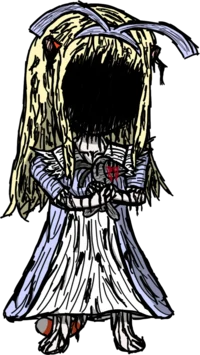







 kept enlarging and ENLARGING in the public and media discourse, it became horrifyingly evident to South Africans just how fundamentally deep this scandal and conspiracy went!!!
kept enlarging and ENLARGING in the public and media discourse, it became horrifyingly evident to South Africans just how fundamentally deep this scandal and conspiracy went!!!
======(from dailymaverick article)
The next morning, the Rand Daily Mail, the paper that had almost been purchased by the Project Annemarie plan, but which had then pursued the scammers ruthlessly, ran its famous banner headline that said, “It's all True.” The story explained, “South Africa's biggest bombshell burst yesterday when Mr Justice Anton Mostert made public startling evidence which has confirmed reports in the Rand Daily Mail and Sunday Express of massive misuse of public money through Department of Information secret funds. Judge Mostert released evidence, which shows beyond doubt, that The Citizen newspaper was financed through State funds. And in evidence under oath, Mr Louis Luyt named the former prime minister, Mr Vorster, the minister of plural relations, Dr Connie Mulder and General Hendrik van den Bergh, former head of the Bureau of State Security, as key figures in the secret project to finance the newspaper.”
Despite the distortions of the political and judicial processes in Apartheid South Africa, a fearless 
 judge had pressed on to the unsavoury but necessary conclusions and made them public without fear or favour.
judge had pressed on to the unsavoury but necessary conclusions and made them public without fear or favour.
By this point, Mulder was taking fire 

 relentlessly in the media. He lost his cabinet post, his leadership position in the National Party and then, finally, his seat in the national parliament. The scandal ruined his political career with the Nats and he eventually lost the 1978 National Party's leadership race to PW Botha. The Erasmus Commission, appointed by PW Botha, sealed his fate when it revealed serious financial irregularities and abuse of power in the Department of Information.
relentlessly in the media. He lost his cabinet post, his leadership position in the National Party and then, finally, his seat in the national parliament. The scandal ruined his political career with the Nats and he eventually lost the 1978 National Party's leadership race to PW Botha. The Erasmus Commission, appointed by PW Botha, sealed his fate when it revealed serious financial irregularities and abuse of power in the Department of Information.
BJ Vorster's fate was not much better. He resigned the prime ministership after being censured by the Erasmus Commission, even though he was exonerated of any actual involvement in the secret projects of the information scandal. 

Muldergate or Infogate was one of those rare but immensely rewarding moments of victory for both the media and actors from within South Africa's judicial establishment in favour of the rule of law during the Apartheid era. Despite the robust pressures they faced, they persevered and found out the truth – and the culprits did not live happily ever after. This scandal made it clear, even to the country's most Panglossian citizens, that government is not always right, or even truthful, and for the same government to bankroll a newspaper, especially via illegal channels, is a pretty darn stupid idea.
=====(end quote)
AFTERMATH:
There is a lot of irony with Muldergate. At least in conservative society and within the ruling National Party, the scandal was less about the fact of a state propaganda campaign than about the mismanagement of state funds, appropriated without the knowledge of Parliament, and an apparent cover-up by senior government officials and elected representatives. But Muldergate did inspire a distrust in government, especially an absolute trust which had so far supported the Apartheid regime blindly up until this moment. Much dissent would sprout from Muldergate, and white anti-Apartheid activists would utilize the infamy of the scandal as proof of the inherent corruption of the regime, and the dangers in which giving such monumental powers to men simply hold power in a nation state, even if you as a white benefit from this totalitarian nature, against the wellbeing of your black countrymen.






 Muldergate - the South African WaterGate Drama of 1977
Muldergate - the South African WaterGate Drama of 1977 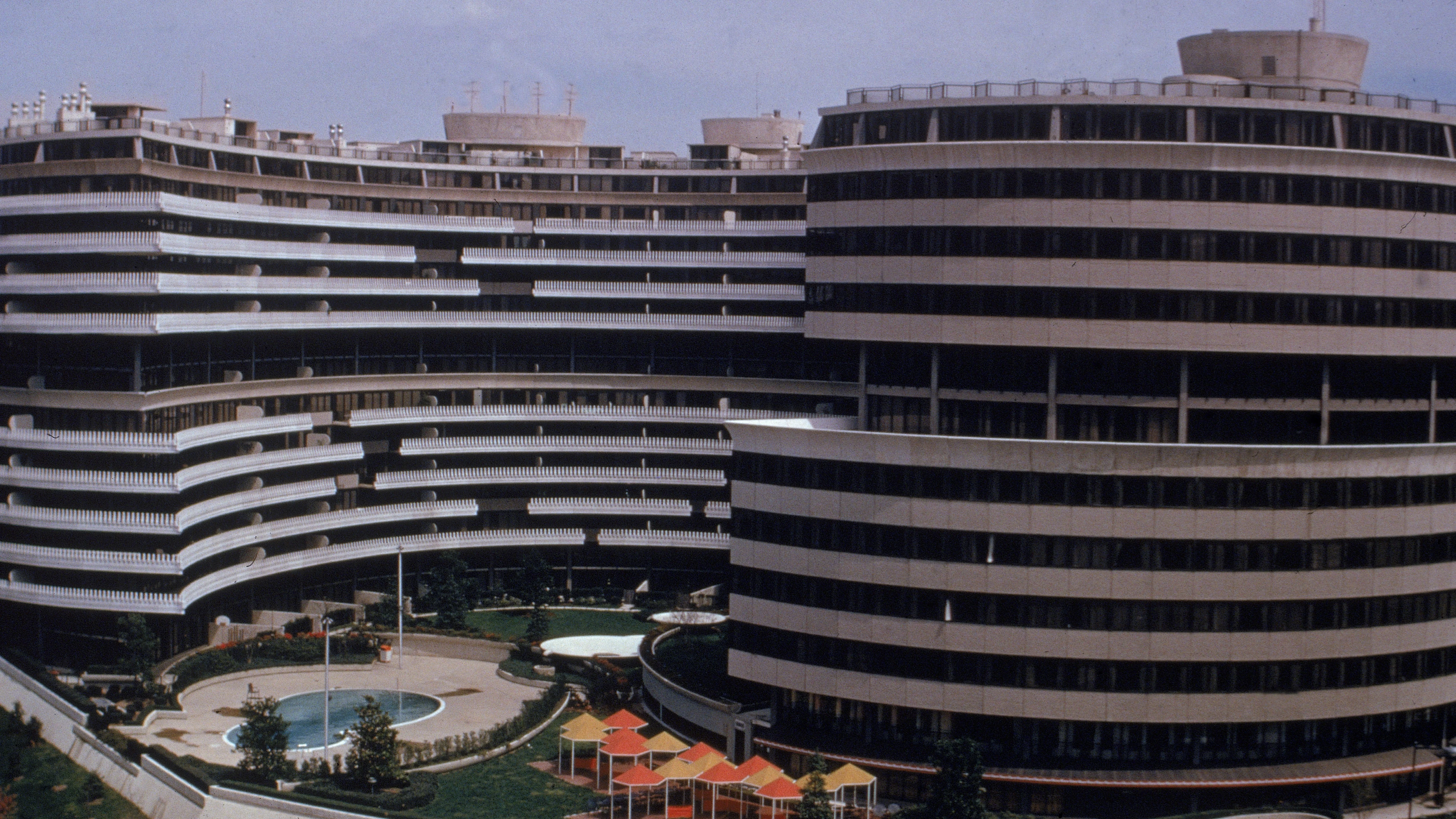
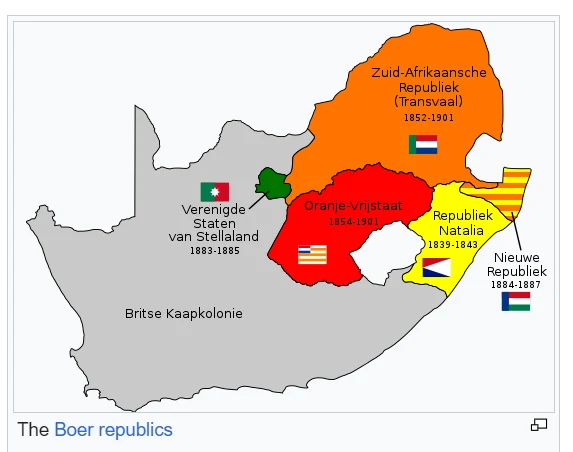
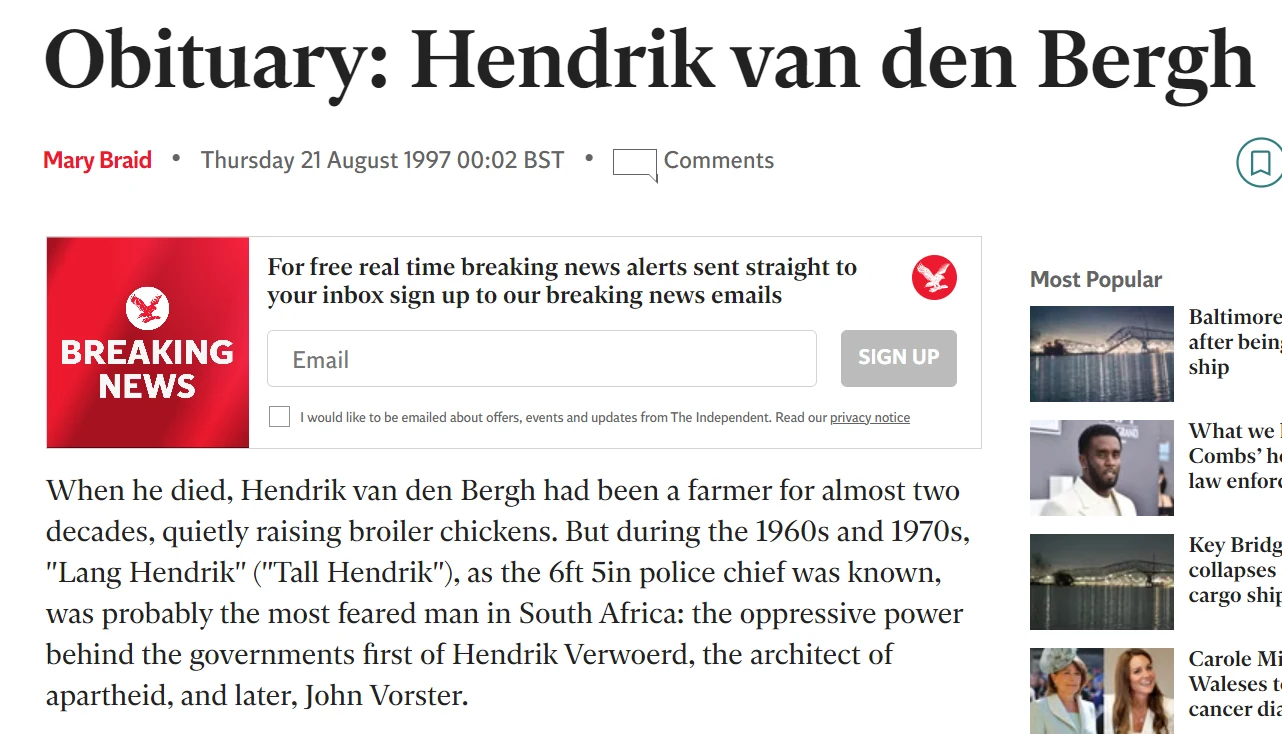
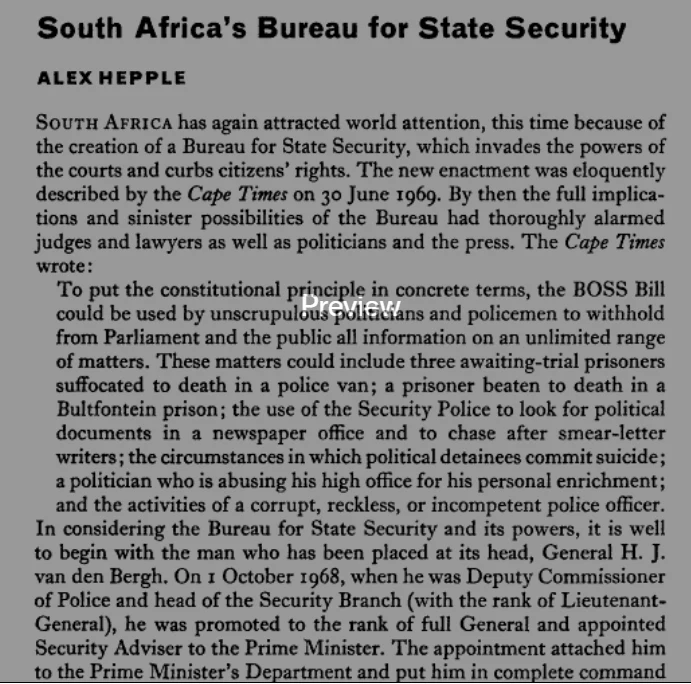
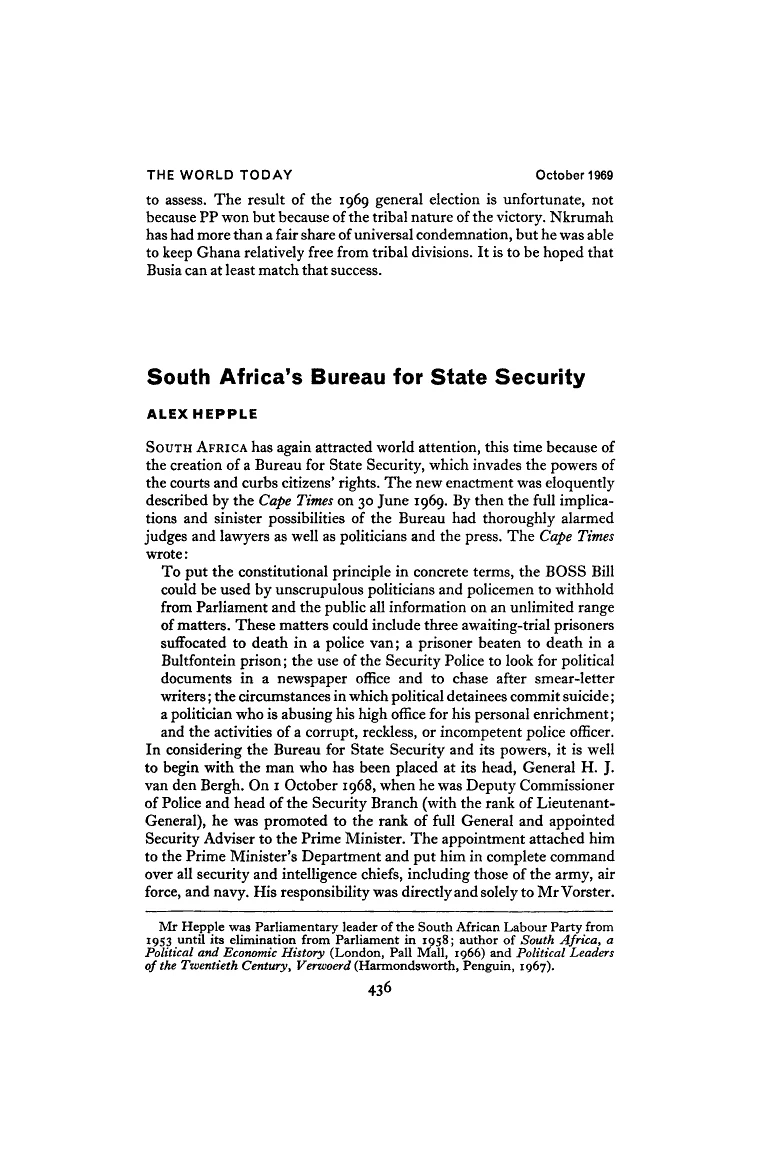
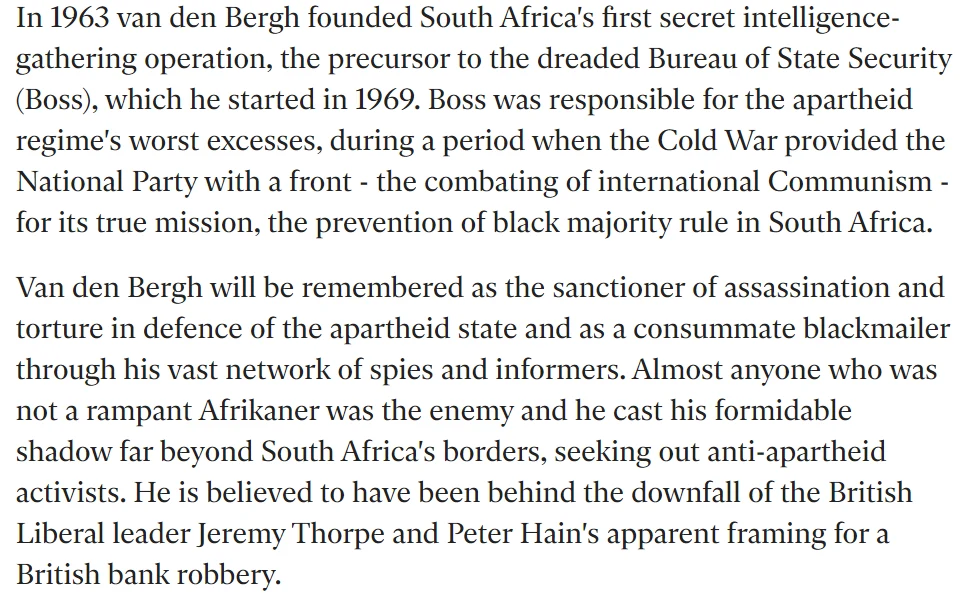
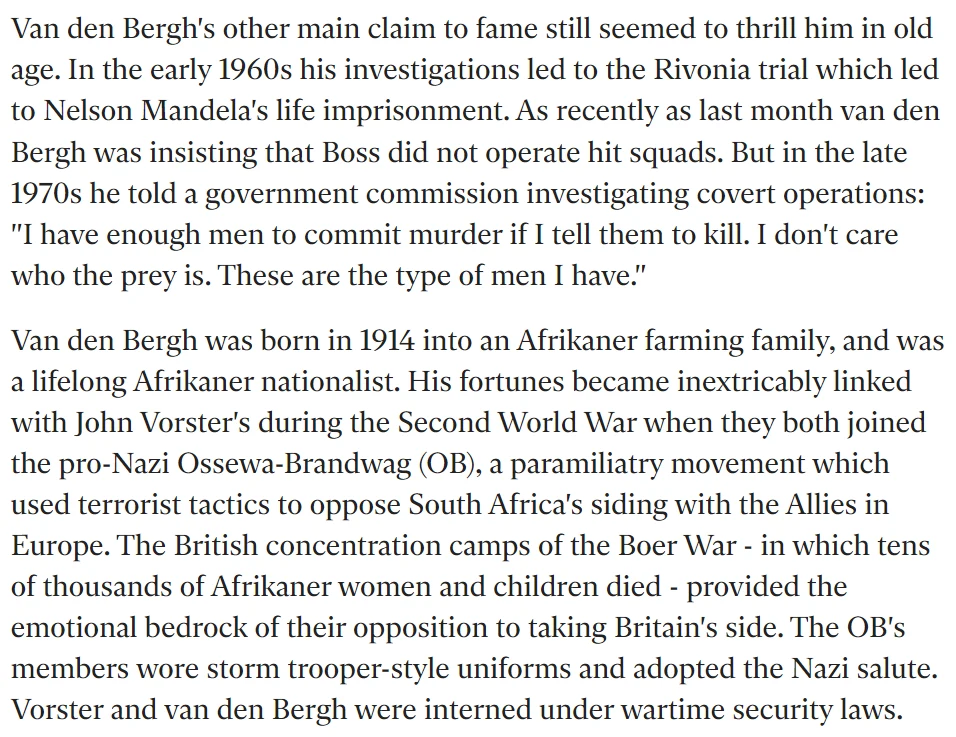
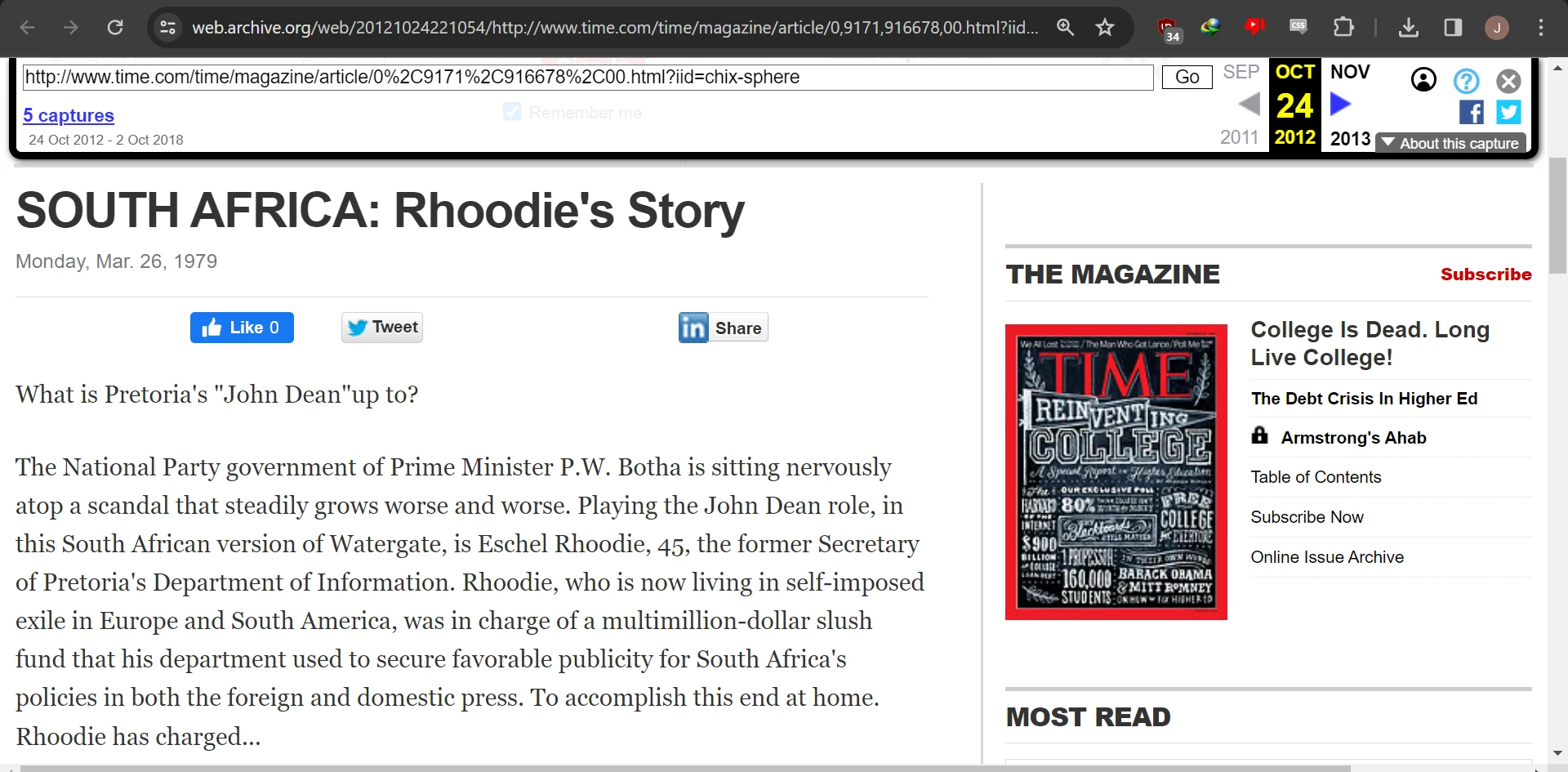
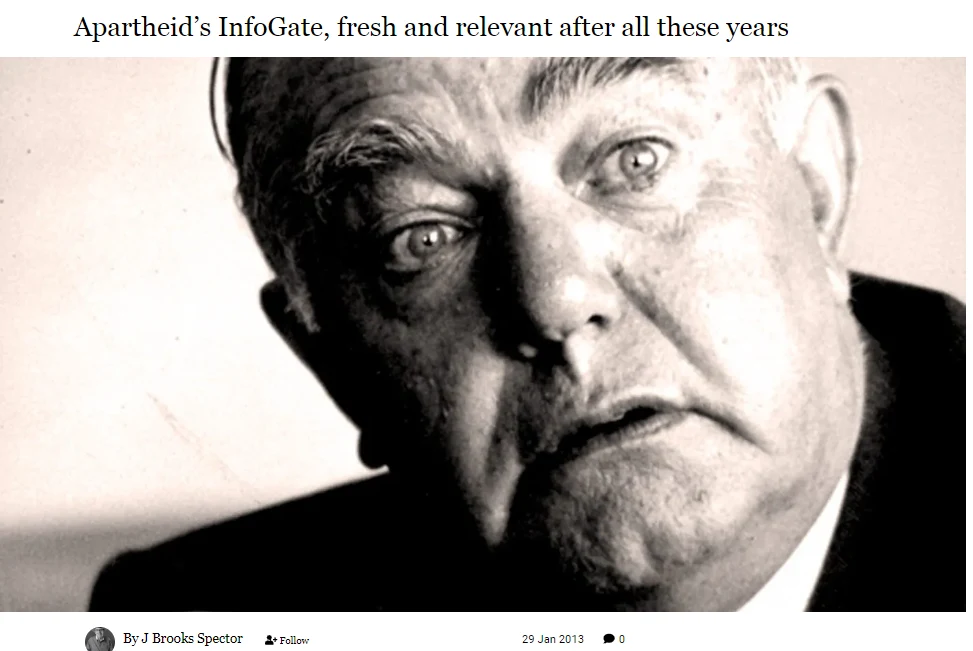

.webp?h=11)
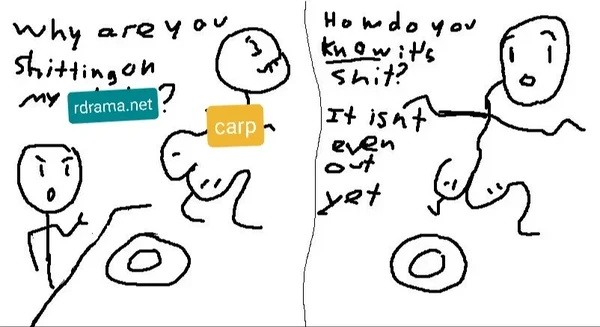
Jump in the discussion.
No email address required.
You forgot the funniest part about Watergate: the burglary was completely unnecessary, as Nixon would ROLF-stomp his opponent in one of the most lopsided victories in US history. Tricky Peepee won 49 of 50 states and the largest popular vote share for a Republican ever.
Radical leftists had seized the Democratic Party, nominating their version of Bernie Sanders. What they didn't know, but what Nixon knew all too well, was that most Americans had come to secretly hate these goddarn hippies. After a decade of the Hippy Movement, the "silent majority" of Americans, as Nixon called them, had grown disenchanted with the long-haired free-loving dopers. Or maybe it was the race riots, left-wing paramilitaries, and weekly bombings. At any rate, though these voters were reluctant to express their true feelings in public, they sure weren't in the voting booth.
The 1972 defeat totally discredited the left wing of the Democratic Party until, well, today. The next election, the Democrats put forth the proto-neoliberal Jimmy Carter, who laid the groundwork for arch-neolib Ronald Reagan. The age of neoliberalism had arrived.
!historychads !neolibs
Jump in the discussion.
No email address required.
Nixon was the archetype of the skeezy politician. He was extremely paranoid, had no scruples, and no real friends. He was correct about almost everything (the CIA killed Kennedy and would off him too if they felt like it, journ*lists are the enemy, China was the way to break the Soviet Communist axis, etc) but he was so transparently scheming and malicious that his actual intellectual ability was obscured entirely
Jump in the discussion.
No email address required.
More options
Context
Every night I pray, and every night I have but one request to God:
That before his death Jimmy Carter finally succeeds in genociding those godarned worms.
Jump in the discussion.
No email address required.
More options
Context
More options
Context